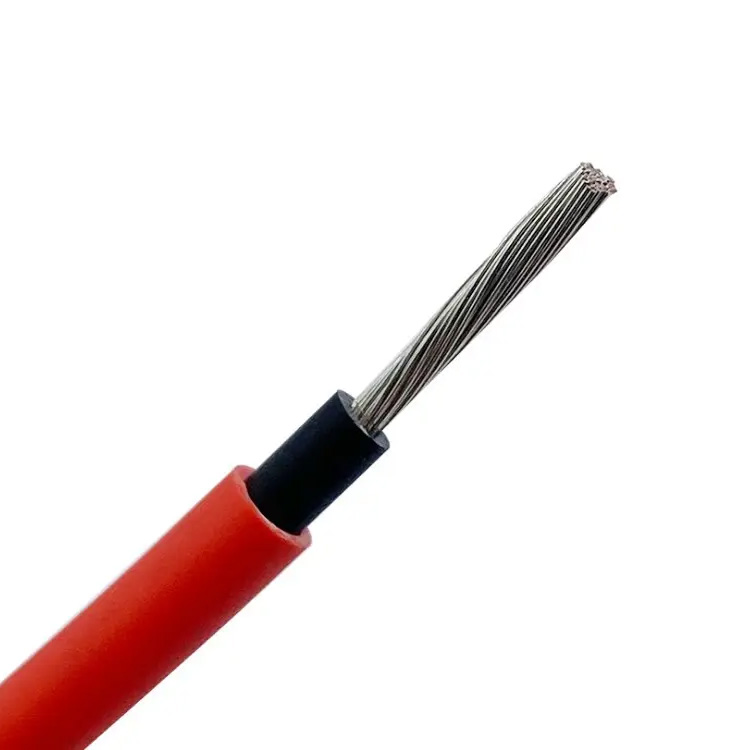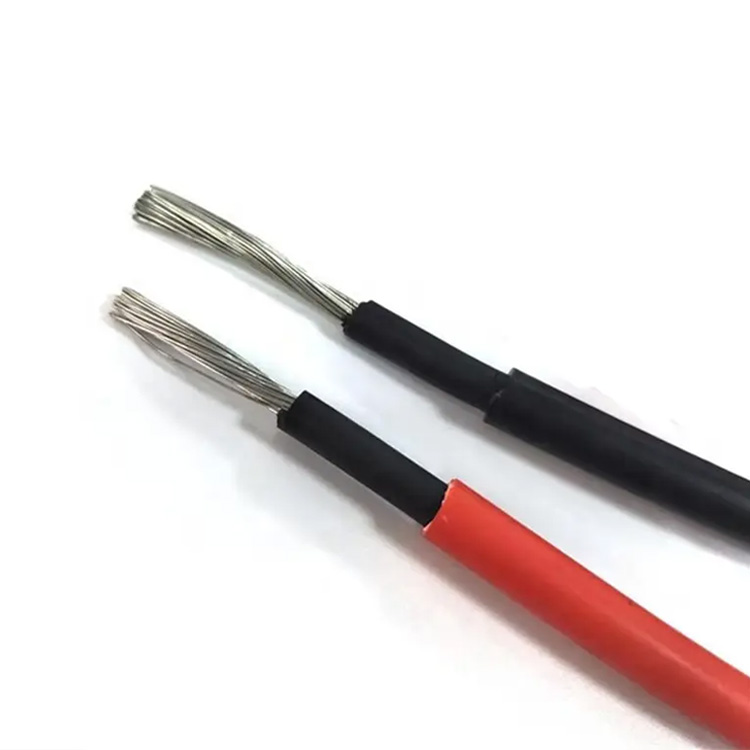

Product Overview
The H1Z2Z2-K PV1-F Solar Cable is engineered for extreme environmental conditions in photovoltaic systems. Featuring double-layer electron-beam cross-linked insulation, it delivers reliable performance across -45°C to +125°C with exceptional UV resistance and mechanical durability. Certified to TUV 2 PfG 1169/08.2007, it ensures >25-year service life in outdoor solar installations.
Compliance & Certifications
| Standard | Certification |
|---|---|
| TUV 2 PfG 1169/08.2007 | PV1-F Certified |
| IEC 60332-1 | Flame Retardant (Single) |
| IEC 61034 | Low Smoke Emission |
| EN 50618:2014 | EU PV Cable Standard |
Construction & Materials
| Layer | Specification |
|---|---|
| Conductor | Tinned copper, IEC 60228 Class 5 (Fine-stranded) |
| Insulation | Electron-beam cross-linked polyolefin (XLPO) |
| Outer Sheath | Electron-beam cross-linked polyolefin (XLPO) |
| Colors | Red (Positive), Black (Negative), Blue, Custom |
Technical Specifications
| Parameter | Value |
|---|---|
| Rated Voltage | 600/1000V AC, 1500V DC |
| Test Voltage | 6.5kV AC, 50Hz, 5 min |
| Temperature Range | -45°C to +125°C (Continuous) |
| Max. Short-Circuit Temp | 280°C (536°F) |
| UV Resistance | 25+ years outdoor exposure |
| Bending Radius | Fixed: >4×OD / Mobile: >5×OD |
Electrical Data (Single-Core)
| Size (mm²) | Ø (mm) | Resistance (Ω/km) | Current (A)* |
|---|---|---|---|
| 4.0 | 6.1 | 4.75 | 55 |
| 6.0 | 7.2 | 3.39 | 70 |
| 10.0 | 9.0 | 1.95 | 98 |
| 16.0 | 10.2 | 1.24 | 132 |
| *Current capacity at +90°C conductor temperature |
Key Advantages
-
Extreme Climate Resilience
-
Operational from -45°C (Arctic) to +125°C (desert)
-
UV-stabilized for 25+ years direct sunlight exposure
-
-
Mechanical Durability
-
Abrasion-resistant sheath (500+ cycles EN 50396)
-
Resists ozone, moisture, and chemical degradation
-
-
Electrical Safety
-
Halogen-free composition (pH >4.3, conductivity <10μS/mm)
-
Low smoke density (>60% light transmittance)
-
Application Scenarios
-
Solar Farms: String connections in sand/coastal environments
-
Industrial Rooftops: High-temperature roof installations
-
Floating PV Plants: Moisture-resistant performance on water
-
Mountain Stations: Sub-zero temperature flexibility
-
Battery Storage: DC coupling for solar chargers
Engineering Selection Guide
| Environment | Recommended Size | Key Feature |
|---|---|---|
| Coastal/High-Salt | 6-10mm² | Corrosion resistance |
| Desert/Abrasive | 10-16mm² | Sand abrasion proofing |
| Arctic/Alpine | 4-6mm² | -45°C cold flexibility |
| High-Temp Roofs | 6-10mm² | +125°C thermal stability |
Packaging: 100m/250m/500m wooden drums
Installation: Minimum bending radius = 5× cable OD
